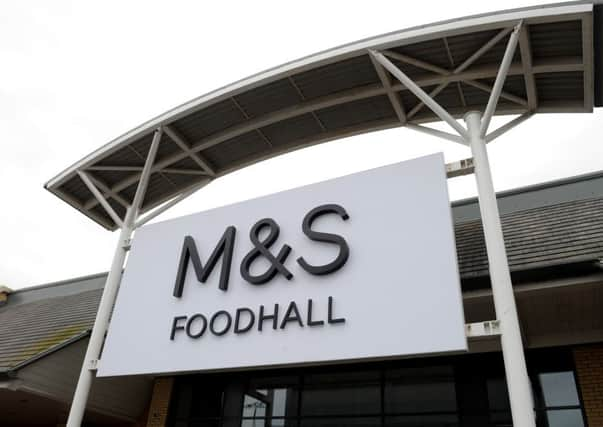Martin Flanagan: M&S sees clothing for show, food for dough
This article contains affiliate links. We may earn a small commission on items purchased through this article, but that does not affect our editorial judgement.


It would be over-egging it to say that M&S under new boss Steve Rowe believes the game is not worth the candle any more with clothing given the division’s seemingly endless malaise. But it is clear from the plans announced that there is a strong recalibration of management focus, with the smaller overseas arm also being scaled back.
M&S says it will close 30 of its UK clothing and homewares stores and more than 50 abroad, while it will open 200 new Simply Food shops.
Advertisement
Hide AdAdvertisement
Hide AdAfter lengthy and pretty unsuccessful efforts to turn the clothing business round by former chief executives Stuart (now Lord) Rose and Marc Bolland, with a transitory false dawn now and then, Rowe can point to the latest results yesterday showing a near-6 per cent slide in like-for-like sales in the division in the first trading half. There is a sense of deja-vu, however. Rowe says these are “tough” decisions, but that he wants to make M&S “simpler”, more relevant and multi-channel.
The problem is these were also the stated aims of his two successors. The decision to scale back on the group’s foreign operations is also resonant of times past.
M&S has never seemed entirely convinced of its commitment to exporting its brand. Rose expanded the business overseas, but subsequently Bolland said somewhat dismissively that he was not interested in “flag-planting” and only wanted foreign outlets where M&S could establish a clear competitive advantage.
It looks like Rowe may have decided establishing that competitive advantage is easier said that done as its presence is scaled back in China and France and it pulls out altogether from other countries such as Belgium, Estonia and Hungary.
Some perspective is salutary, however. M&S, for all its apparent “drift”, can still depend on core annual profits of between about £500 million and £650m a year.
Many businesses would salivate at such a mark of “failure”. The problem is that the City beats the group up given that in 1998 it was the first British retailer to make a £1bn profit.
Meanwhile, Rowe would not be the first retailer to try and “streamline” their way to progress.
